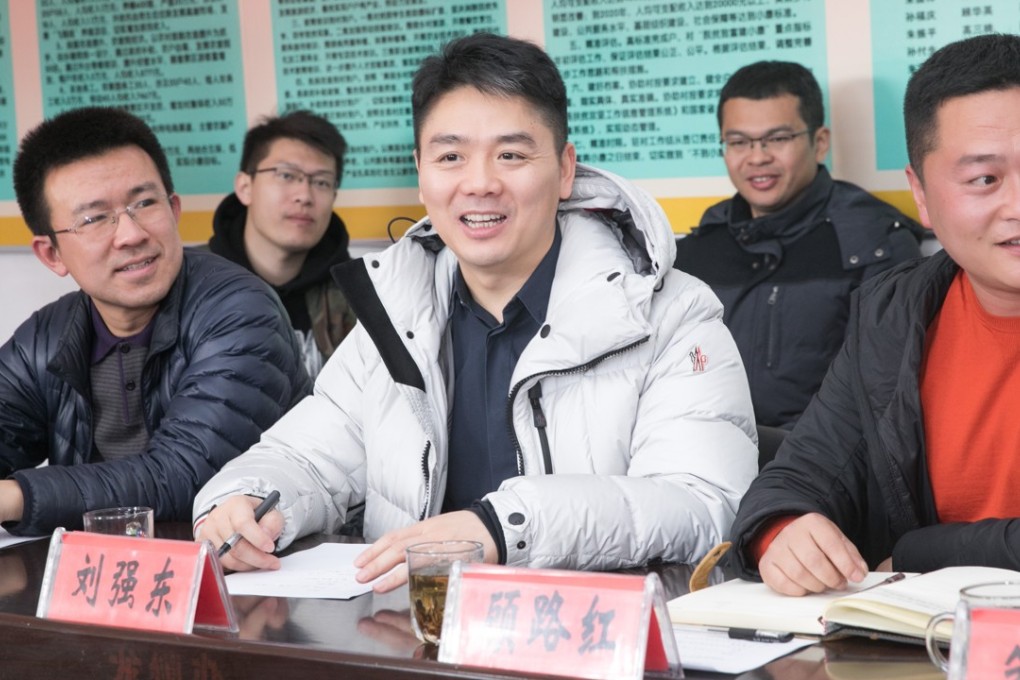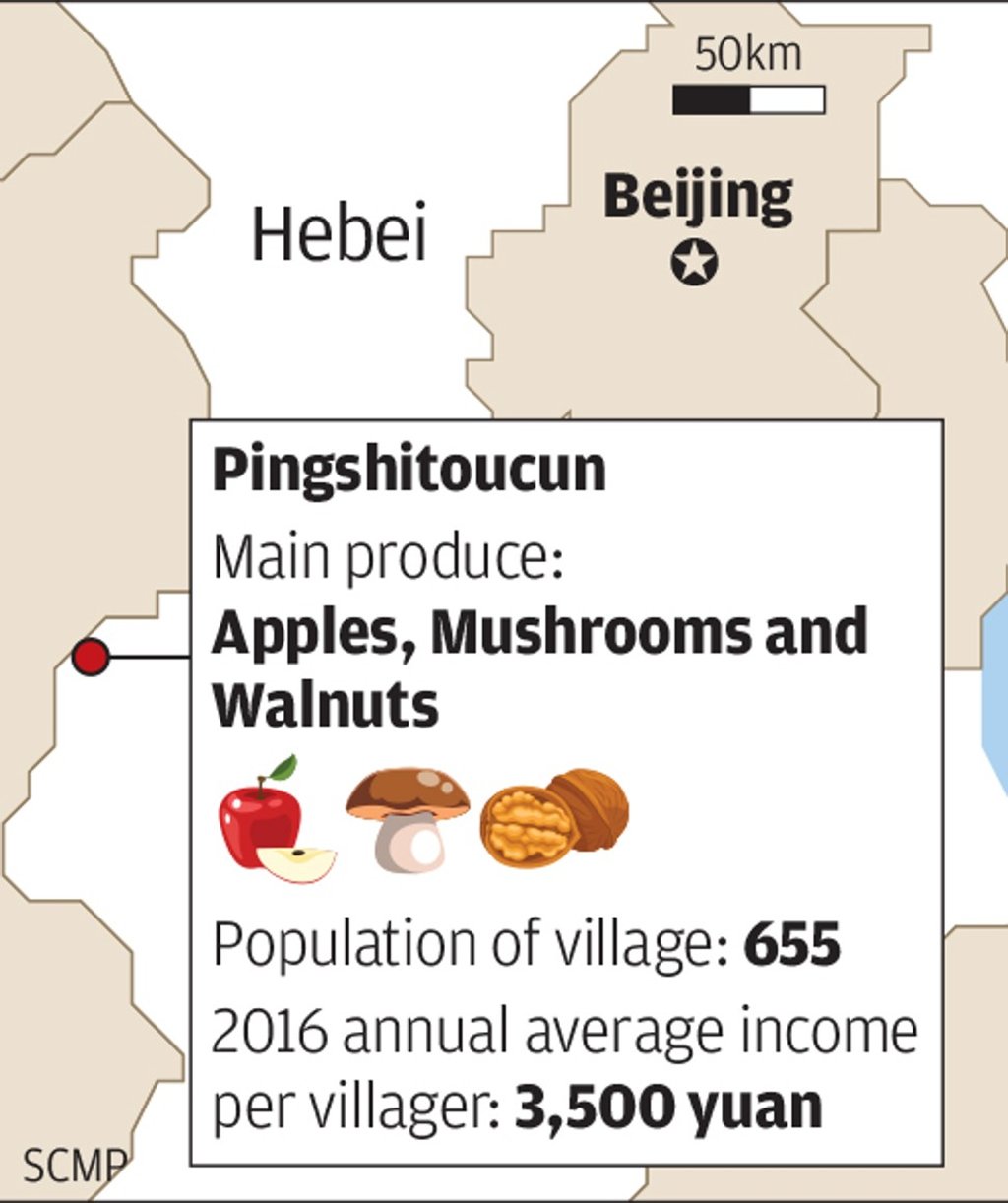China’s e-commerce tycoon fulfils boyhood dream to become village head, pledges to spread wealth
As a child, JD.com’s billionaire founder Richard Liu harboured dreams of becoming a village chief so he could help every villager afford to eat pork

Pingshitou village may just be 300 kilometres south of Beijing, but it might as well be another world. There’re no soaring towers in this mountainous region of Hebei province, and the village’s 655 residents coax apples, mushrooms and walnuts out of near-barren land. Average income levels hover just above the official poverty line.
For Richard Liu, billionaire and chief executive of China’s second-largest online retailer JD.com, Pingshitou is a reminder of his early years as a farmer’s son. As the newly appointed honorary head of the village, it is also his latest project: to raise income levels by 10 times within five years.
To achieve that target, Liu plans to gather the village’s produce and sell it through JD.com, according to the company. And instead of selling them as commodities, the company will help the villagers build brands for their agriculture products and assist with the design of the packaging so that they can command a higher price. Liu also plans to build a nursing home, attract better teachers for the school and create jobs for some of the local residents.
On his way to the village, Liu posted a photo of the mountainous terrain and said that the lack of natural resources is the main reason for the poverty. Photos on social media show Liu getting out of a black SUV and greeting villagers, who crowded around him to take group photographs.
